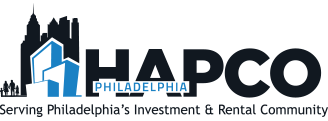Note: This story was written from an interview Hapco Philadelphia conducted with several of the housing advocates who created this report. To watch the interview and learn more, scroll down.
A new study by the Urban Land Institute (philadelphia.uli.org) finds that the City of Philadelphia must dramatically improve its relationship with city landlords or devolve into an affordable housing crisis. The report, sponsored in part by the city, investigated why “naturally occurring affordable housing”, defined as affordable non-subsidized housing, is “in crisis”.
“We are already what’s considered to be in crisis in terms of having housing that’s affordable for most people in the City of Philadelphia. Over 50% of the City of Philadelphia’s residents have housing costs that exceed 30% of their income, and I believe over 30% of the City’s residents have housing costs that exceed 50% of their income. It will only get worse unless we find better solutions,” says Jonathan Weiss, a volunteer panelist in the study and 20-year Hapco Philadlephia member.
At the heart of the solution are Philadelphia “mom and pop” landlords. Weiss says 65% of housing that is “naturally affordable” is owned and operated by small landlords with five units or fewer.
Jim Burnett, Executive Director of VestedIn, which provides capital and resources to support Philadelphia businesses, says the City must treat small landlords not just as property owners but as business owners. Burnett also volunteered as a panelist in the study.
“Where we see these small landlords is literally as if they were running a business. Essentially, they’re making an investment in property. Their property then needs to have continual support services. And around Philadelphia, there are literally tens of business support organizations but very few of them provide that type of support for small landlords,” Burnett tells Hapco Philadelphia.
Weiss compared Philadelphia to another large city. “If you Google ‘landlord training programs’ with the City of Chicago, there’s a variety of training programs they have where they bring in the police department, L&I and social services groups to help landlords understand what it means to be a provider of housing and how to negotiate it. If you Google-search “City of Philadelphia landlord training programs”, you’re going to come up with a list of requirements and licenses and regulations that you need to meet. It’s just a very different philosophy. There’s all kinds of well-intentioned regulatory pieces, but it’s set up as obstacles, not as a way to help this group of people.”
And the pandemic only made a bad situation worse. “It’s tough to be in a position where your customers are not required to pay you, but you’re required to continue providing services to them. There was some rental subsidy money the federal government made available, but it was very complicated to access. I experienced it firsthand,” Weiss said.
They agree the city would be better served by providing small landlords with funding opportunities for repairs rather than pour money into inefficient red-tape subsidy programs.
“It’s really redirecting resources. I think the city is interested in exploring ways to do it,” Weiss says.
Burnett believes the time is now. “People are listening, but we only have a small window of opportunity before people start to go back to their normal habits. But if we can catch them now with the right support systems, I think we can get a lot of change within the city.”
It starts with getting all stakeholders to read the ULI report, says Laura Slutsky, Executive Director of ULI Philadelphia.
“The point of this is to consider these naturally-occurring properties that currently are not subsidized and not regulated as part of our affordable housing stock and the owners as part of that universe. Today, there’s just not as built-in of an infrastructure like there is on the subsidized side to support for capital streams, for repair programs to maintain the housing quality. And so the hope is that by starting to focus on these property types, we can bring a focus that these properties are part of the city’s affordable housing preservation strategy.”
Study panelists included both national and local affordable housing advocates. The Urban Land Institute is a non-lobbying agency that does housing policy work in partnership with the public sector. It has 45,000 members worldwide, including 900 in the Philadelphia region.

